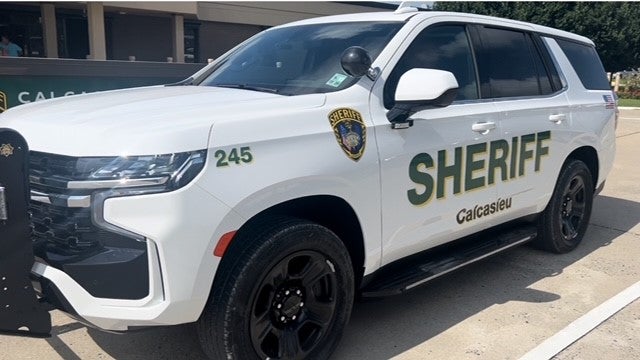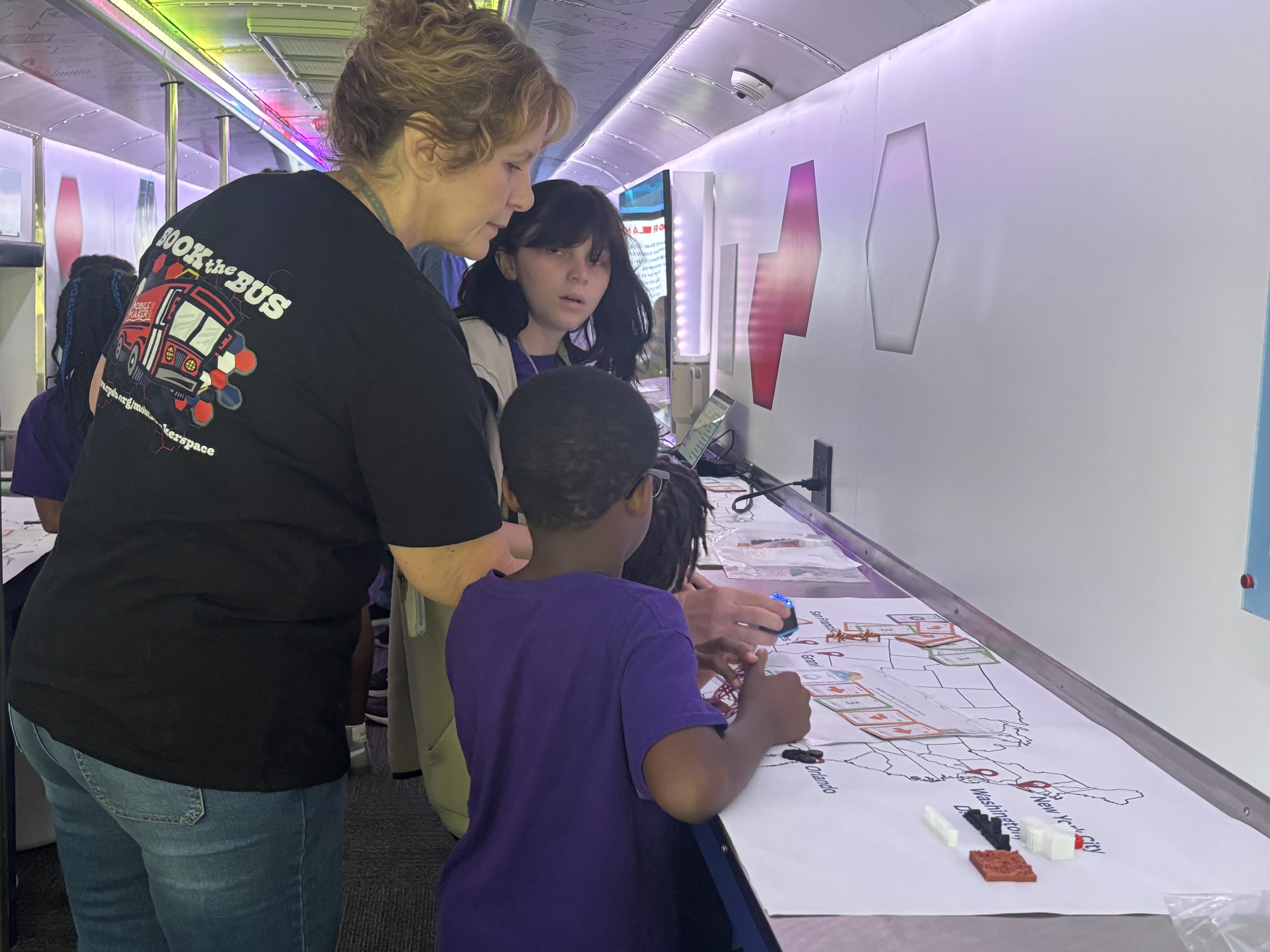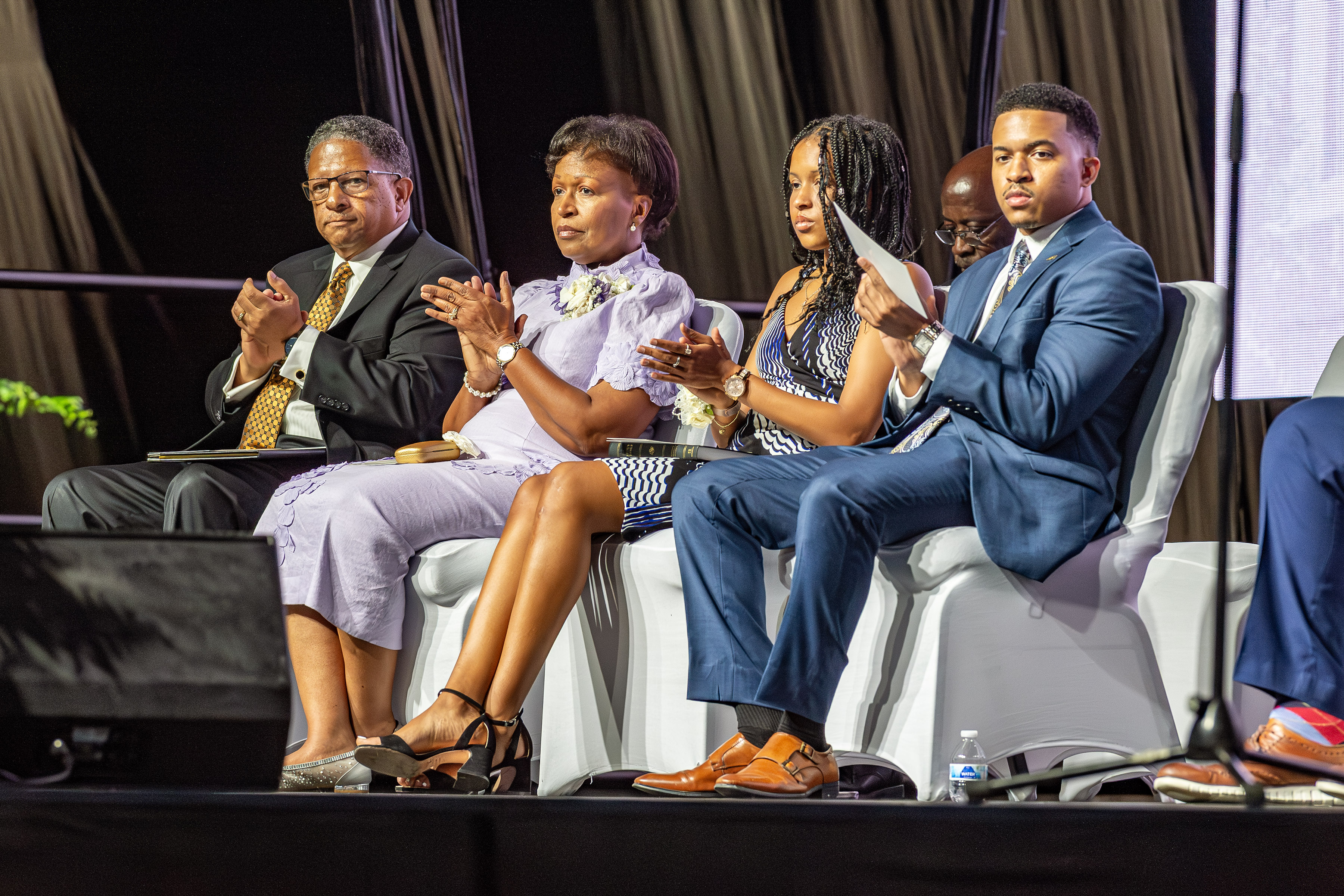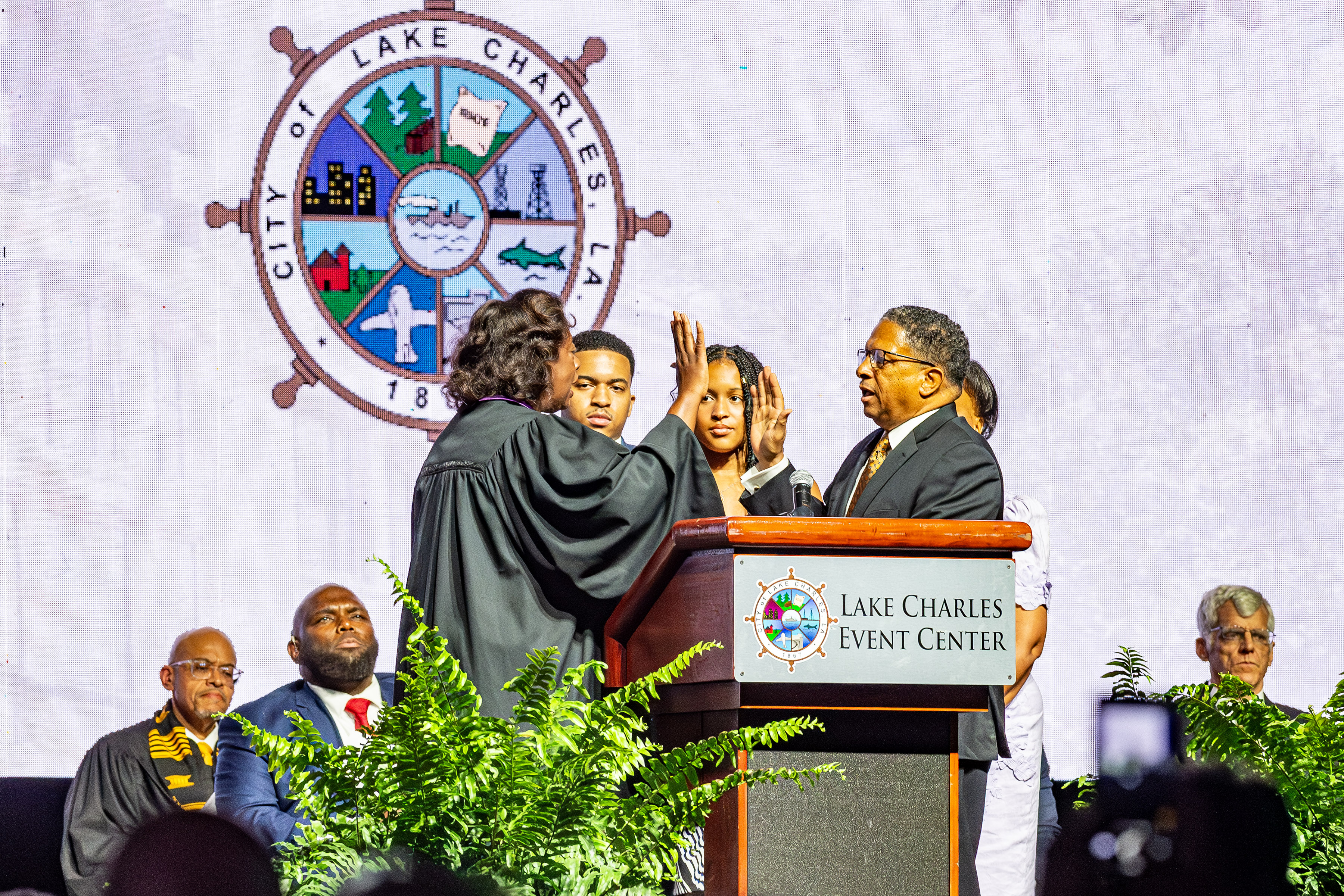Sowela jet gets fresh paint
Published 6:17 am Friday, August 16, 2024
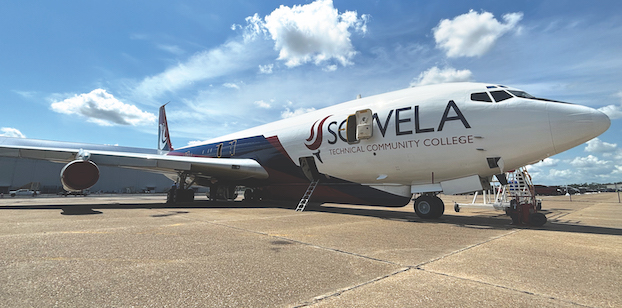
- This Boeing 707-300 jet aircraft that was gifted to Sowela Technical Community College has received a makeover by Landlocked Aviation. The design, created by Sowela instructor Erik Jessen, features Sowela’s logo. (Emily Burleigh / American Press)
Last September, the Sowela Technical Community College’s Aviation Maintenance program was gifted a historic Joint Stars aircraft. On Thursday the college unveiled the plane’s new paint job.
Sowela received the $73 million — originally valued at $35 million — Boeing 707-300 jet from the U.S. Air Force through the Louisiana State Agency for Surplus Property, marking the largest donation in the school’s history. This jet, which was part of the now-dissolved E-8 Joint Stars fleet, was originally used for airborne surveillance and command during operations like Desert Storm and Joint Endeavor. After its active service, it was repurposed as a pilot trainer for takeoffs and landings.
Over the past year, the aircraft got a makeover by Landlocked Aviation. The design — created by Erik Jessen, digital arts and communication instructor at Sowela — features Sowela’s colors and logo, the Air Force emblem, U.S. flag and elements of the original paint scheme.
Aviation Maintenance Instructor Brad Hensley told the American Press that the paint job also highlights the history of the plane. The seams, patches, stiffeners and roundhead rivets under the paint are markings of the aircraft’s time in action. He said that over its lifespan, over $1 billion has been invested into repairing the aircraft.
Dean of Transportation and Applied Technology Dean Rob Null called the plane “a great monument to the spirit of Sowela” that ensures graduates from the aviation maintenance program get a jumpstart in their careers, at the aircraft unveiling ceremony.
Many are hired before they graduate, he said, with an estimated starting salary of $65,000 that will become “six figures easy.”
With the demand for aviation mechanics being higher than the one for pilots, Sowela’s aviation maintenance program continues to expand and increase in enrollment. Enrollment has increased by 21 percent since last fall, with a total of 46 students. This is the first time that the program has had a waiting list.
He said this is because the program is a “one-stop, one-shop aviation training facility.”
With the addition of this “jumbo jet,” the aviation maintenance program now has about a dozen plans for students to train on. Sowela’s program is the only in Louisiana that offers students a chance to get hand-on experience with a military-modified large-body turbofan aircraft. The college is also a Federal Aviation Administration (FFA) certified testing center.
Titus Acoff is an aviation maintenance student starting his second semester in the program. He enrolled at Sowela because he was looking for a school to help him not only learn, but also “grow and develop.”
“Sowela had the most to offer.”
In the program, he gets unique, marketable hands-on training that teaches him a standard of safety with global reach. In the Boeing 707, he feels connected with the history and legacy of the aircraft, which instills a “sense of responsibility” in him and his peers.
“Knowing that an aircraft is safe because I put my hands on it. … It feels amazing. It’s not just about me, it’s part of a bigger mission.”
The time and energy put into restoring the plane is a symbol of the college’s commitment to its students, he told The American Press.
“When I see investment, I see people pouring into the place, it says ‘Hey, I want to do this for the next generation,’ he explained. “That means a lot.”
The aircraft fills a need that was created in August 2020, said Sowela Chancellor Neil Aspinwall. The Boeing 727 that students previously trained on was severely damaged during Hurricane Laura.
“This to me symbolizes our continuing progress, the final journey we’ve taken to recover from Hurricane Laura and Delta,” he said. “This jet, to me, makes us whole again.”
Sowela’s aviation-related training will soon see new heights with the planned flight school at Sowela and Chennault that was made possible by a bond proposal passed last November. Lake Charles Mayor Nic Hunter called Sowela’s recovery and progress “a case study when you get the right people working together.”
Until then, Null said the students (and himself) are ready to start training with the aircraft.
“There’s nothing like bringing to life four legacy turbofan engines,” he said. “There’s nothing like the smell of jet fuel in the morning.”


